To fix various problems with the OS, Windows 10 comes with a number of built-in troubleshooters. Sometimes they are really useful and can resolve the issue quickly. Once you run a troubleshooter, a history of its details is kept, so you will be able to view it at any moment later.
Advertisеment
In Windows 10, Microsoft has added all the available troubleshooters to the Settings app. The link from the classic Control Panel also opens the new Settings page.
Troubleshooters in Windows 10
To run a troubleshooter in Windows 10, you can use a new page in the Settings app. You will find them under Settings \ Update & security \ Troubleshoot.
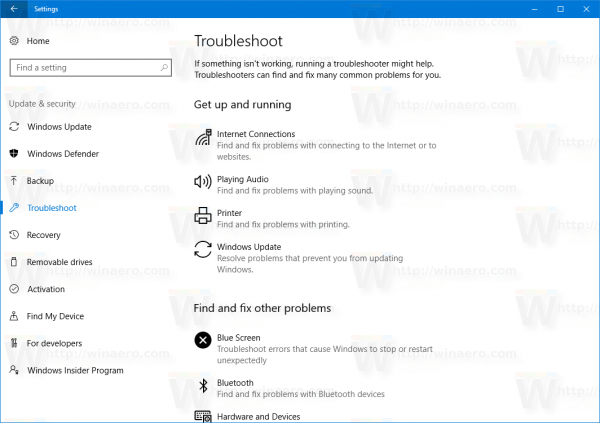
The following troubleshooters are available.
- Internet connections
- Playing Audio
- Printer
- Windows Update
- Blue Screen
- Bluetooth
- Hardware and Devices
- HomeGroup
- Incoming Connections
- Keyboard
- Network Adapter
- Power
- Program Compatibility Troubleshooter
- Recording Audio
- Search and Indexing
- Shared Folders
- Speech
- Video Playback
- Windows Store Apps
View Troubleshooting History and Details in Windows 10
While troubleshooters where moved to Settings, the ability to view your troubleshooting history and details for the actions you performed remains the classic Control Panel exclusive feature. Let's see how to see it.
To view Troubleshooting History in Windows 10, do the following.
- Open the Control Panel.
- Switch to the Large icons view.
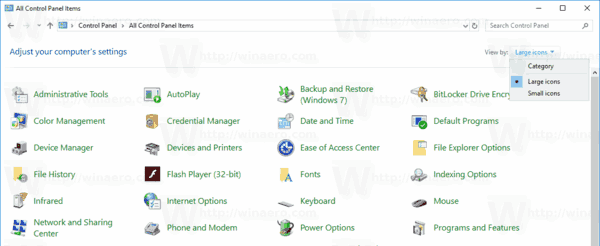
- Click on the Troubleshooting icon.
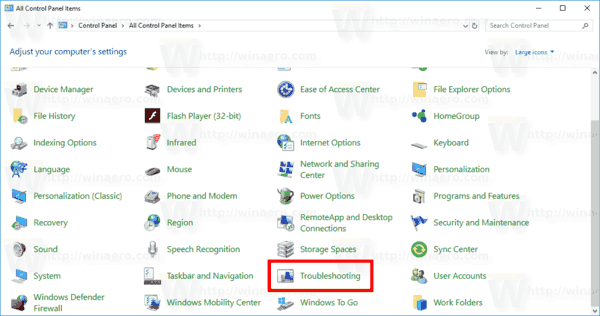
- On the left, click on the link View history.
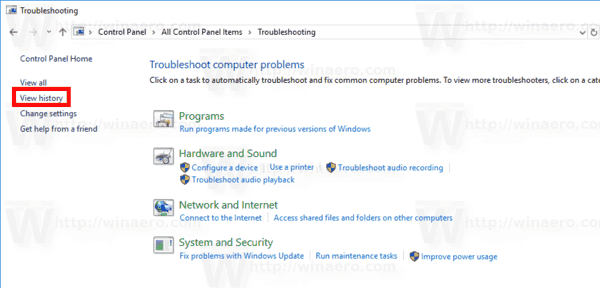
- If you are signed in as an administrator, click on the link Include troubleshooters that were run as an administrator.
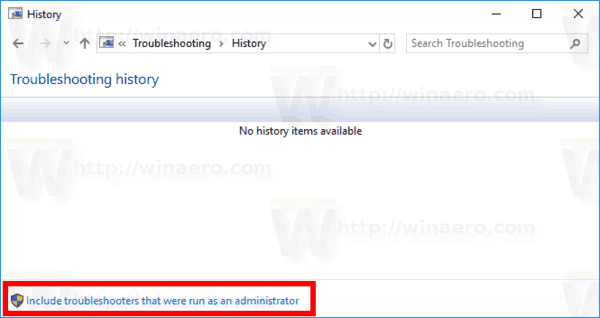
- In the list, you'll see the stored troubleshooting history for your computer. Select the desired even and click on the View details button (or simply double-click the row) to see more information about the event.
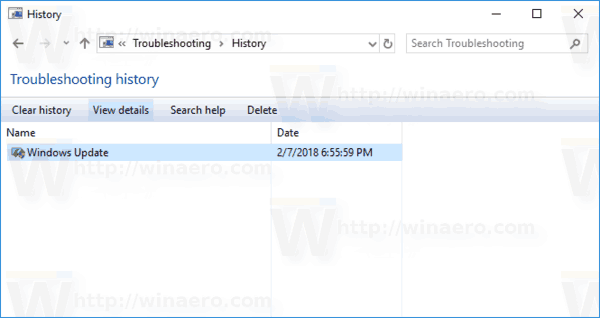
You are done. The following screenshot demonstrates the troubleshooting report for Windows Update.
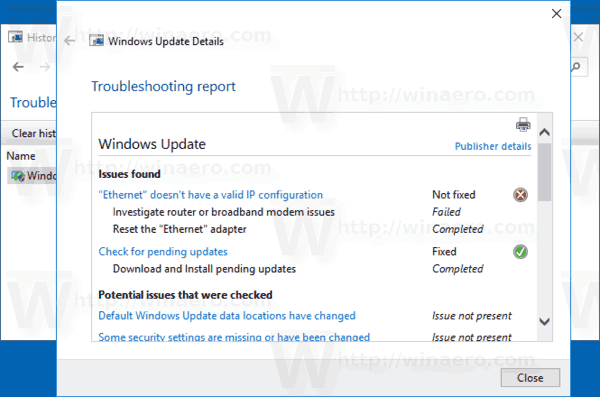 Note: These troubleshooters are not a new feature of Windows 10. They are available in previous Windows 10 builds inside the classic Control Panel. The actual change made to recent Windows 10 builds is the ability to access them through the Settings app. If you are running a Windows version without troubleshooters in the Settings app, refer to the article
Note: These troubleshooters are not a new feature of Windows 10. They are available in previous Windows 10 builds inside the classic Control Panel. The actual change made to recent Windows 10 builds is the ability to access them through the Settings app. If you are running a Windows version without troubleshooters in the Settings app, refer to the article
How to Run a Troubleshooter in Windows 10 to Resolve Problems
That's it.
Support us
Winaero greatly relies on your support. You can help the site keep bringing you interesting and useful content and software by using these options:

Wow, Sergey
History and details for wushowhide.diagcab!!!
THank You
John
Heh, you are welcome. Yeah, it should reflect external troubleshooters too.